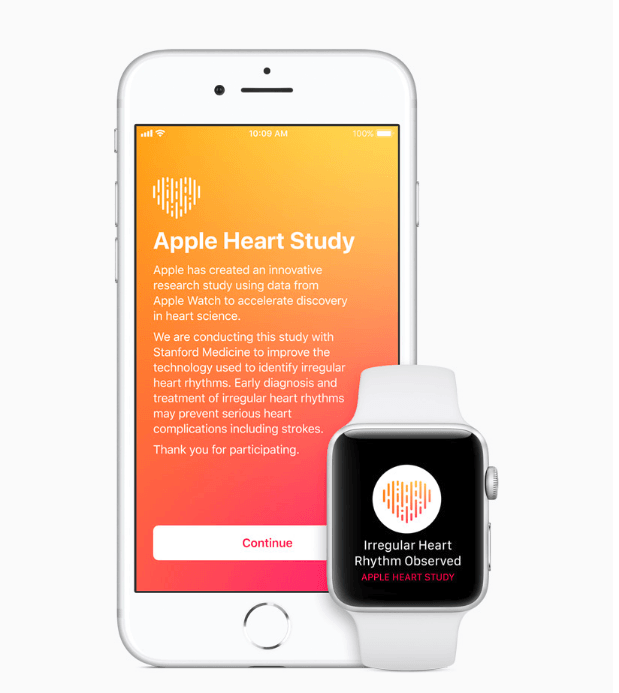
Apple in partnership with Stanford Medicine has announced the launch of the Apple Heart Study app, a first-of-its-kind innovative research study using Apple Watch’s heart rate sensor to collect data on irregular heart rhythms and notify users who may be experiencing atrial fibrillation (AFib). The Apple Heart Study app uses this technology to identify an irregular heart rhythm.
Atrial Fibrillation (AFib), is the most common heart arrhythmia, and a leading cause of stroke. AFib affects more than 30 million people worldwide, and one in four people over the age of 40 are at risk for developing it. Millions of people around the world are unknowingly living with AFib. Yet, two out of three strokes are preventable when AFib is detected and treated appropriately.
Apple Heart Study Overview
To calculate heart rate and rhythm, Apple Watch’s sensor uses green LED lights flashing hundreds of times per second and light-sensitive photodiodes to detect the amount of blood flowing through the wrist. The sensor’s unique optical design gathers signals from four distinct points on the wrist, and when combined with powerful software algorithms, Apple Watch isolates heart rhythms from other noise.
As part of the study, if an irregular heart rhythm is identified, participants will receive a notification on their Apple Watch and iPhone, a free consultation with a study doctor and an electrocardiogram (ECG) patch for additional monitoring. The Apple Heart Study app is available in the US App Store to customers who are 22 years or older and have an Apple Watch Series 1 or later.
“Every week we receive incredible customer letters about how Apple Watch has affected their lives, including learning that they have AFib. These stories inspire us and we’re determined to do more to help people understand their health,” said Jeff Williams, Apple’s COO in a statement. “Working alongside the medical community, not only can we inform people of certain health conditions, we also hope to advance discoveries in heart science.”
